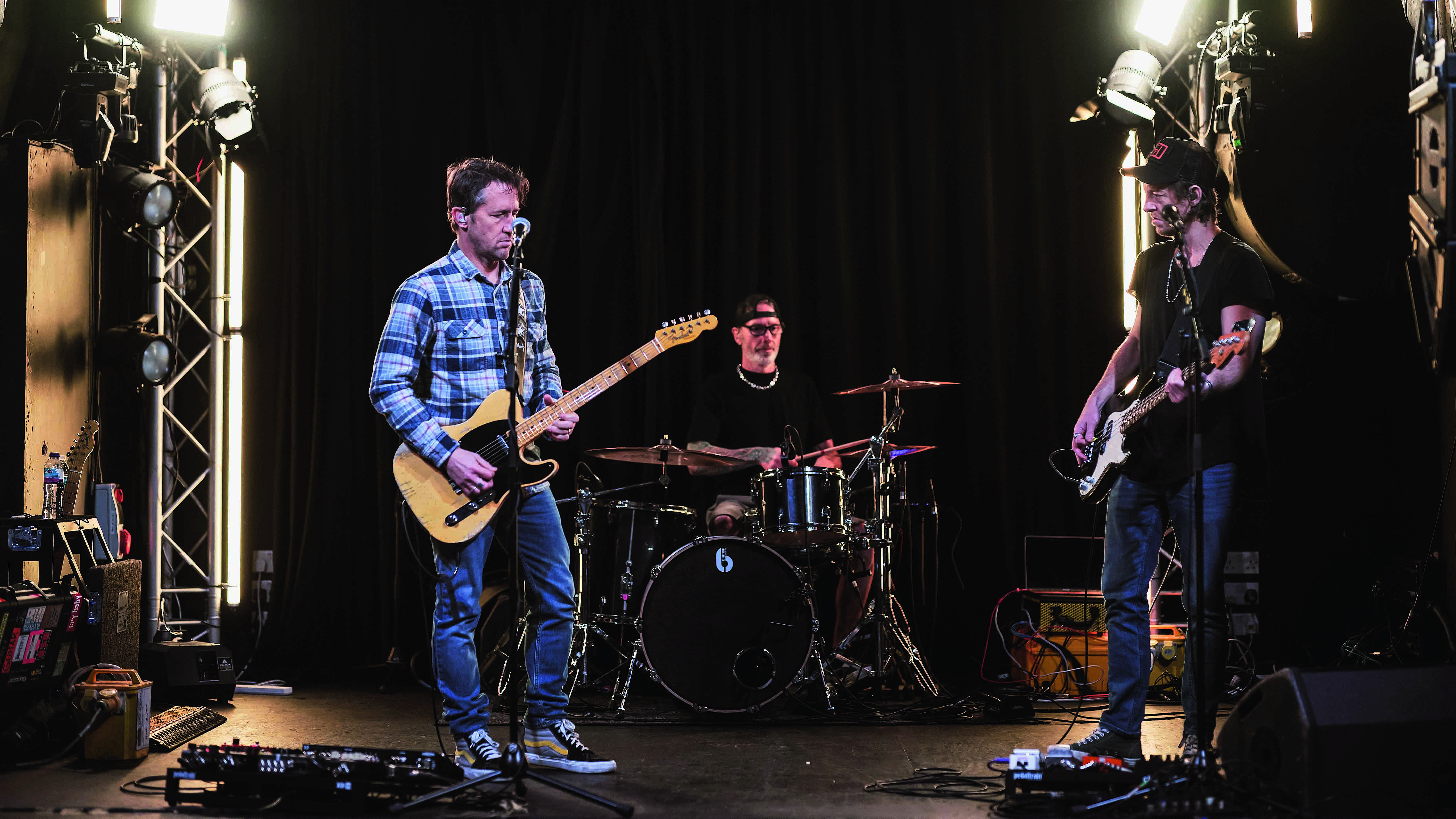
As the songwriter and vocalist in his own solo career, and also a member of the biggest rock band in the world, Foo Fighters guitarist Chris Shiflett knows about preparing for live shows. Stadiums, clubs and even the back of a truck on at least one occasion, he's played them all, but that doesn't mean he's not looking at new ways to tackle the challenges of learning and arranging new and old songs for a live set.
By his own admission, the Foo Fighters have often ended up taking on each other's recorded live parts when it comes to playing songs live, and now as he looks to recreate the work of four guitarists (including himself) that contribute to his excellent forthcoming country rock solo album Lost At Sea, he's discovering the benefits of a familiar DAW.
You have to figure out who's playing what, and you can wind up playing something that somebody else played on the record
"It's like this in any band, it's like this in the Foo Fighters, when when you make a record, and then you have to play the songs live," he tells us. "You have to figure out who's playing what, and you can wind up playing something that somebody else played on the record. In my solo thing, I gotta also sing it, so I have to play around the vocals."
This is where a new approach proved to be a bit of a game-changer for Chris.
"We've been doing a thing for the last year or so," he reveals. "I got an Ableton track setup and so we stemmed out pretty much everything from my last few records. So that's been fun to sort of figure out – ok what can I actually do live? To try to figure out how to incorporate that into our live show, which is really fun.
"It's an amazing tool we didn't have a few years ago, or at least I didn't have it. I was always scared of it, or just thought it was lame. And now I've got it in my own thing, and I love it."
You can't afford to bring out on six or seven-piece band
The Ableton approach has allowed Chris and his band to deliver the best show they can, especially in the face of the limitations that won't allow for an expanded line-up.
Want all the hottest music and gear news, reviews, deals, features and more, direct to your inbox? Sign up here.
"We're on a shoestring budget, and you can't afford to bring out on six or seven-piece band," he admits to us. "That would be my preference, but financially it doesn't make any sense. So if you've got your pedal steel, your keyboards, your second guitar and your percussionist on a laptop, it's finding the balance between the actual live thing that we're doing and, and bringing in that stuff.
But it's a lot of fun. And I think it just makes it a better show, you know, but most people in the crowd aren't really even aware of it, or care. But it's all about what makes this the best experience in the room when we're playing shows."
- Lost At Sea is released on 20 October via Blue Élan Records.

Rob is the Reviews Editor for GuitarWorld.com and MusicRadar guitars, so spends most of his waking hours (and beyond) thinking about and trying the latest gear while making sure our reviews team is giving you thorough and honest tests of it. He's worked for guitar mags and sites as a writer and editor for nearly 20 years but still winces at the thought of restringing anything with a Floyd Rose.